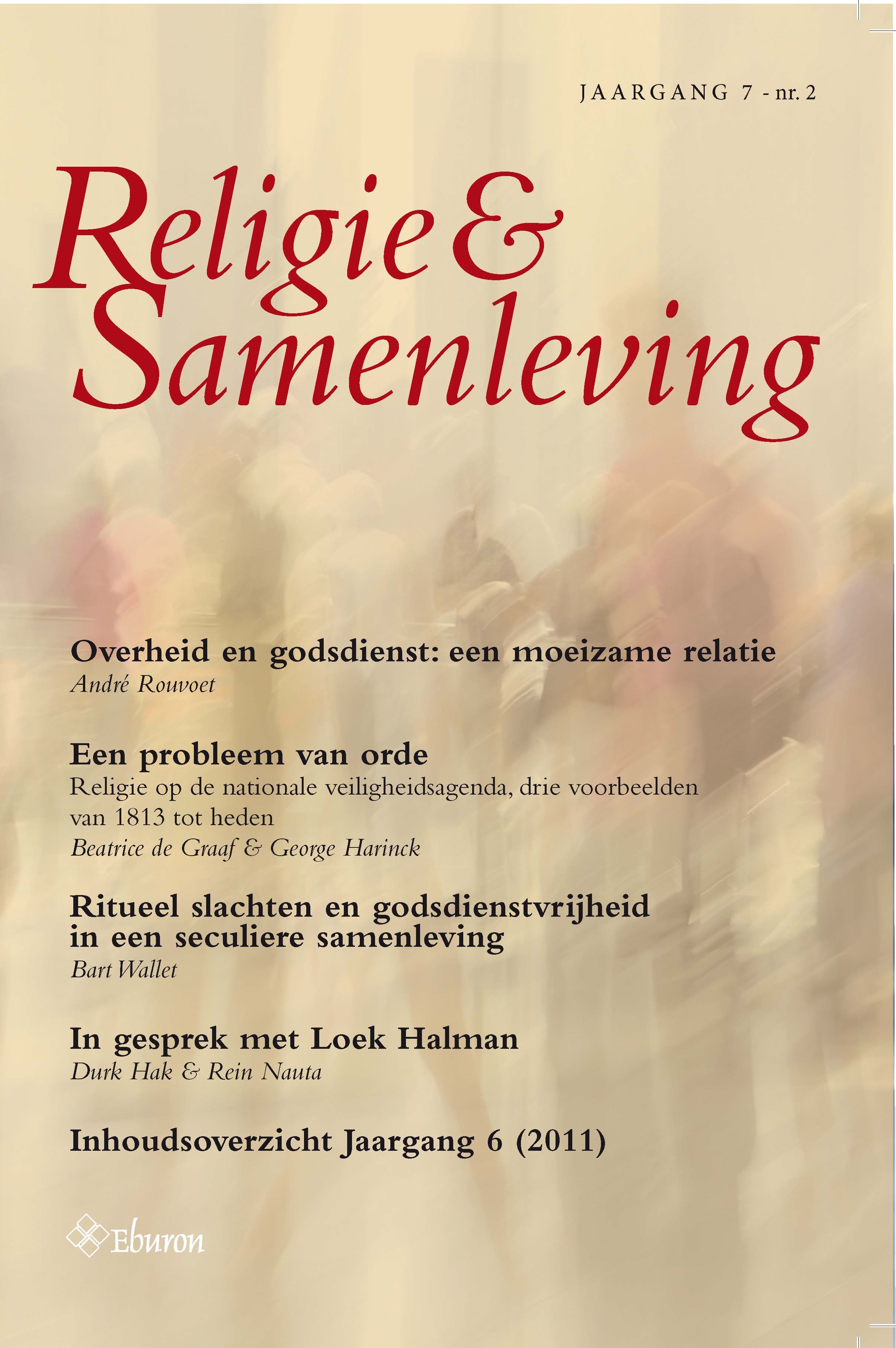Een probleem van orde. Religie op de nationale veiligheidsagenda, drie voorbeelden van 1813 tot heden
DOI:
https://doi.org/10.54195/RS.12966Samenvatting
This paper highlights the relation between church/religion and the modern nation state from a security perspective. Rather than sticking to metaphors or models that frame this relation in dichotomous ways and advocate a stricter division of state and religion, we argue that it is much more helpful to use Foucault’s concept of governmentality to unpack the ways in which the two are interrelated. The notion of governmentalization, e.g. the rationalisation of governmental practice in the exercise of political sovereignty, enables us to identify the underlying values and norms in the framing of certain topics as security threat. By presenting three examples of the securitization of religion throughout the 19th, 20th and 21st century, we will demonstrate that church and religion are crucial markers in the process of centralization. Tendencies of governmental centralization, either propelled by external security threats or by internal state building processes, often went hand in glove with the framing of religious minorities as a problem of public order and/ or security.




